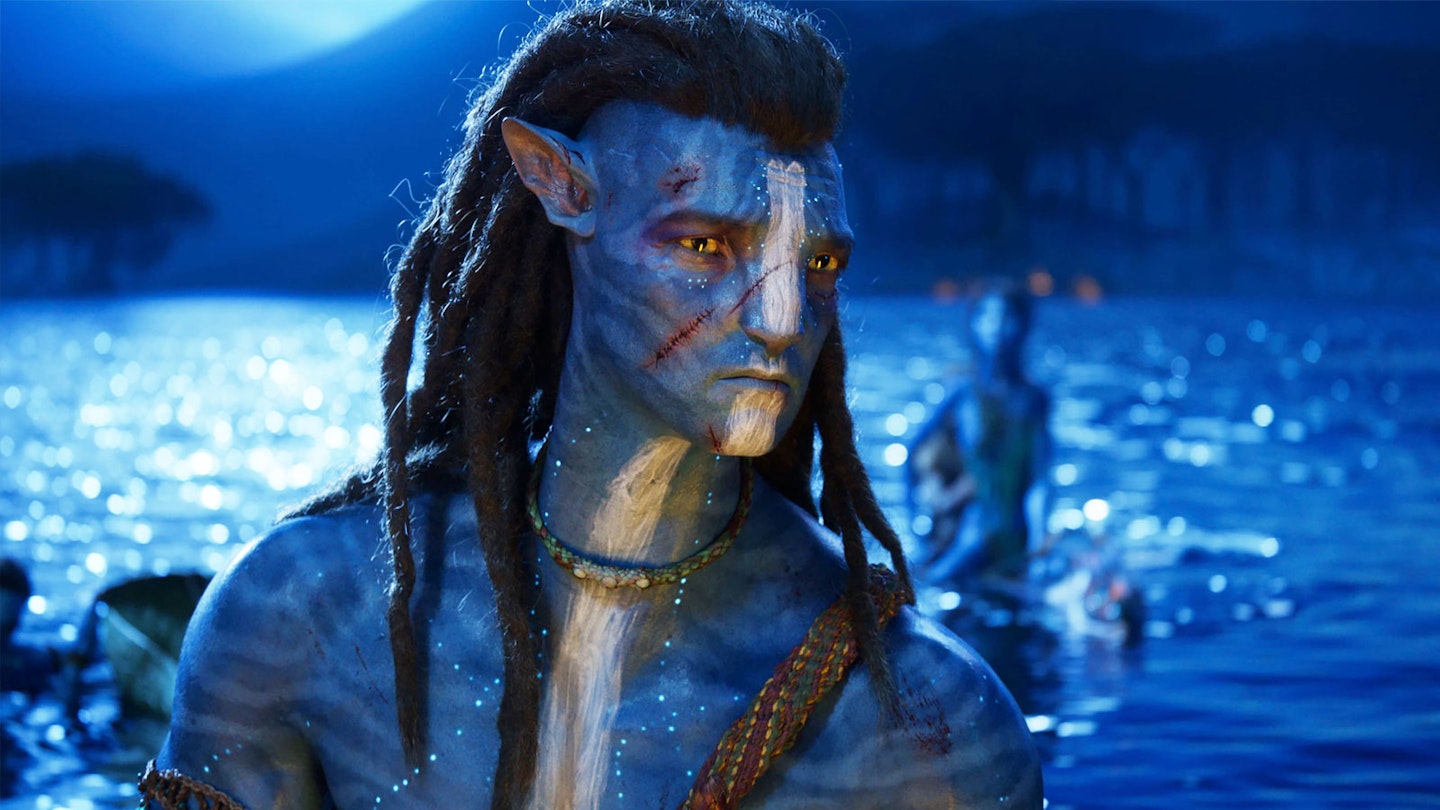‘This Time It’s War’. This classic tagline from James Cameron’s Aliens could well be the slogan for the director’s latest, Avatar: The Way Of Water, the second in a five-part saga and, lest we forget, the follow up the highest grossing film of all time. At the heart of the heat of the battle between the Na’vi (the blue ones) and the humans (the avaricious Giovanni Ribisi ones) is Jake Sully (Sam Worthington), the soldier turned Toruk Makto (Na’vi big cheese) who this time around has a wife Neytiri (Zoe Saldaña) and kids to protect during the ongoing conflict.
With the underwater sequel just weeks away, Empire spoke to Worthington about how The Way Of Water’s stakes have been raised, acting underwater and the challenge of playing a character across a five film arc.
Avatar: The Way Of Water is a film about raising a family during wartime. How does that play out from Jake’s point of view?
I think the biggest thing for me was, in the first one, there's a real duality with Jake. Obviously, he's human but then he's driving the avatar. Something Jim and I talked about was how do you keep this duality running, even though the story is increased and developed. Jake’s journey this time is does he decide to be how he ended the last movie, as this leader of these tribes, or does he just focus on being the leader of a family? That's the duality of his journey in episode two. For Jake, whenever you include a family, be it the immediate one or the bigger one of all the tribes, the stakes are immediately going to be raised higher than they were in the first one, where it was just a solo journey.
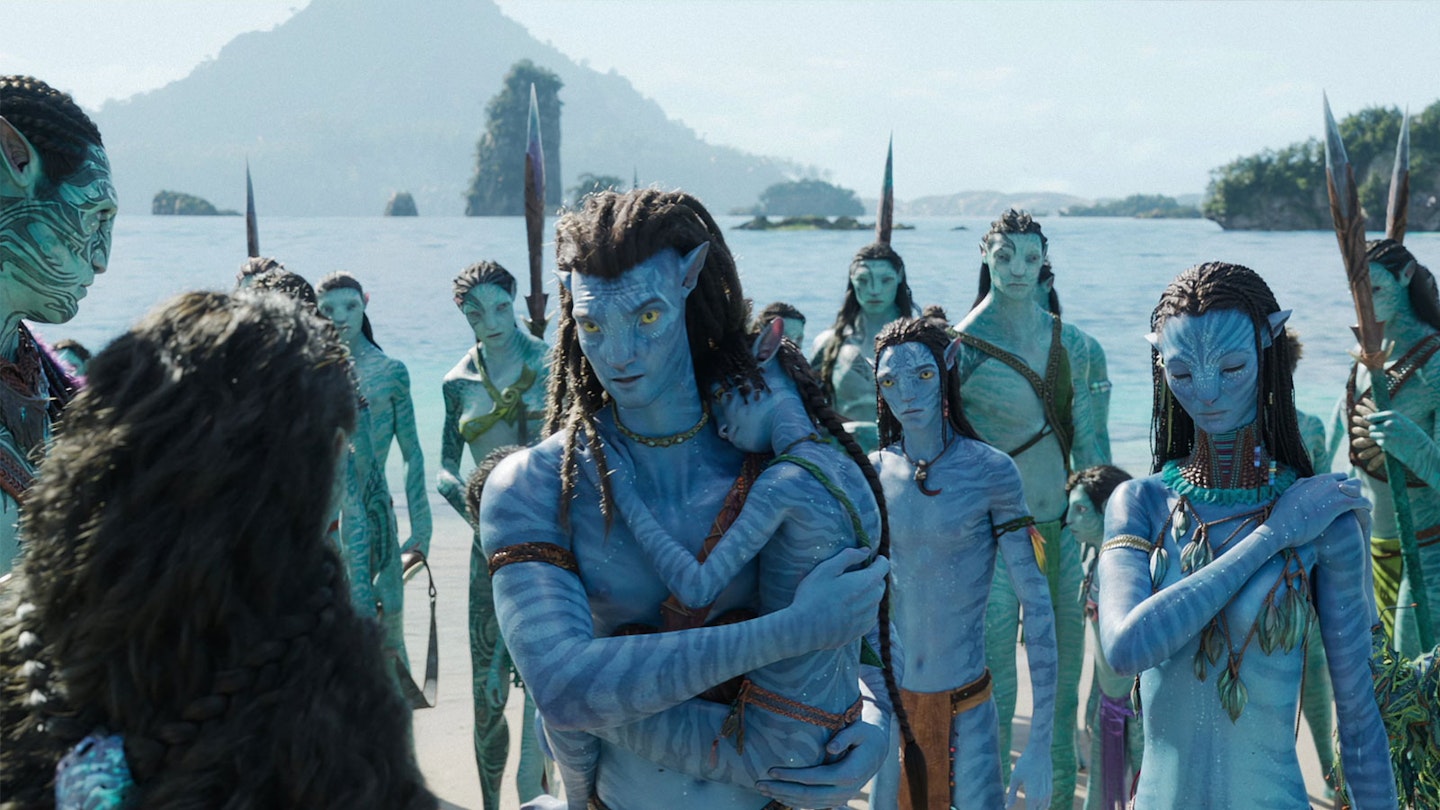
There is the idea of your family is a fortress; are you raising a family or a squad?
Look, I'm a father of three boys. Zoe’s a mother of three boys. In this, we have boys. It was something Zoe and I could easily tap into, which was: what are you imparting to your kids? It's not necessarily about raising a squad. It's about what are you teaching them to be as they develop. Most families realise that you're going to have a conflict between mum and dad of how they're going to raise their sons and what kind of people they want their sons to be. In this case, Jake comes from the point of view of a military background, I think he leans into that way of thinking, because that's what was ingrained in him about surviving. And so the conflict of pacifism versus militarism is definitely going to come clashing.
Unlike other blockbusters, Avatar gives you meaty acting scenes as well…
Yeah, otherwise, it just becomes a spectacle. That's it. We’re pushing the envelope of motion capture anyway; no one's actually tried to do it underwater. So we were definitely the guinea pigs on that. But, if you don't include something that is about heart, then the movie just becomes about the capture side of it and the technique of how we create these things. The actors Jim employs were 100% concerned about protecting the performance side of performance capture because without that heart, and without that kind of love for each other, it's just bells and whistles. And that's most blockbusters. Jim doesn't work on those levels. He wants it to work if you strip it all away. When you perform it, there are no bells and whistles. You're either in an empty grey soundstage, or you're underwater. The main thing that's tangible is the other performer. It's essentially always about that commitment and that connection.
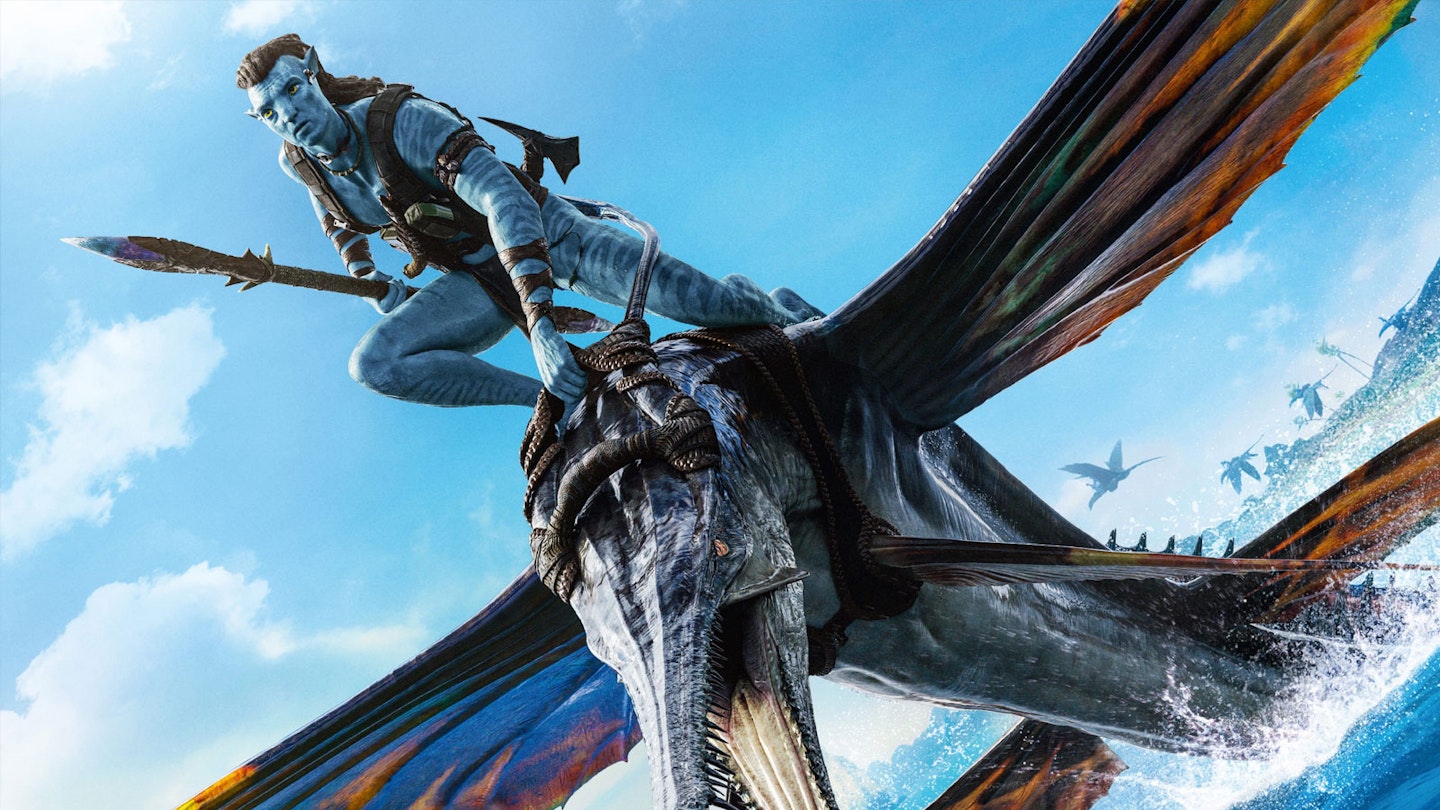
Jake and his family take refuge with the Metkayina, some ocean-adaptive Na’vi who live on the reefs of Pandora. How would you describe their relationship?
I think by the time Jake gets to the reef, his family is the most important thing in the world. So he just wants to assimilate with these people, and do the best he can to prove to them that he's left these warmongering ways behind — he doesn't want to bring the war down to the reef people, he doesn't want to bring the baggage of being Toruk Makto with him. He just wants to kind of fit in and live with his family in this peaceful, harmonious environment. The problem is they're always chased by something.
What are your memories of shooting underwater?
You spend many, many hours — ten, twelve, fifteen — underwater, and it's stressful for everybody involved; not just the performance, but the safety team, the freedive team, the camera crew that are under there with you with Jim and the technical crew on top. If that's not running smoothly, then people are going to get in trouble. So there's an element of risk about it. This is where I yield to Jim, because he's never going to put us in trouble. He's done enough missions that he understands that this was kind of a mission-based approach to filmmaking
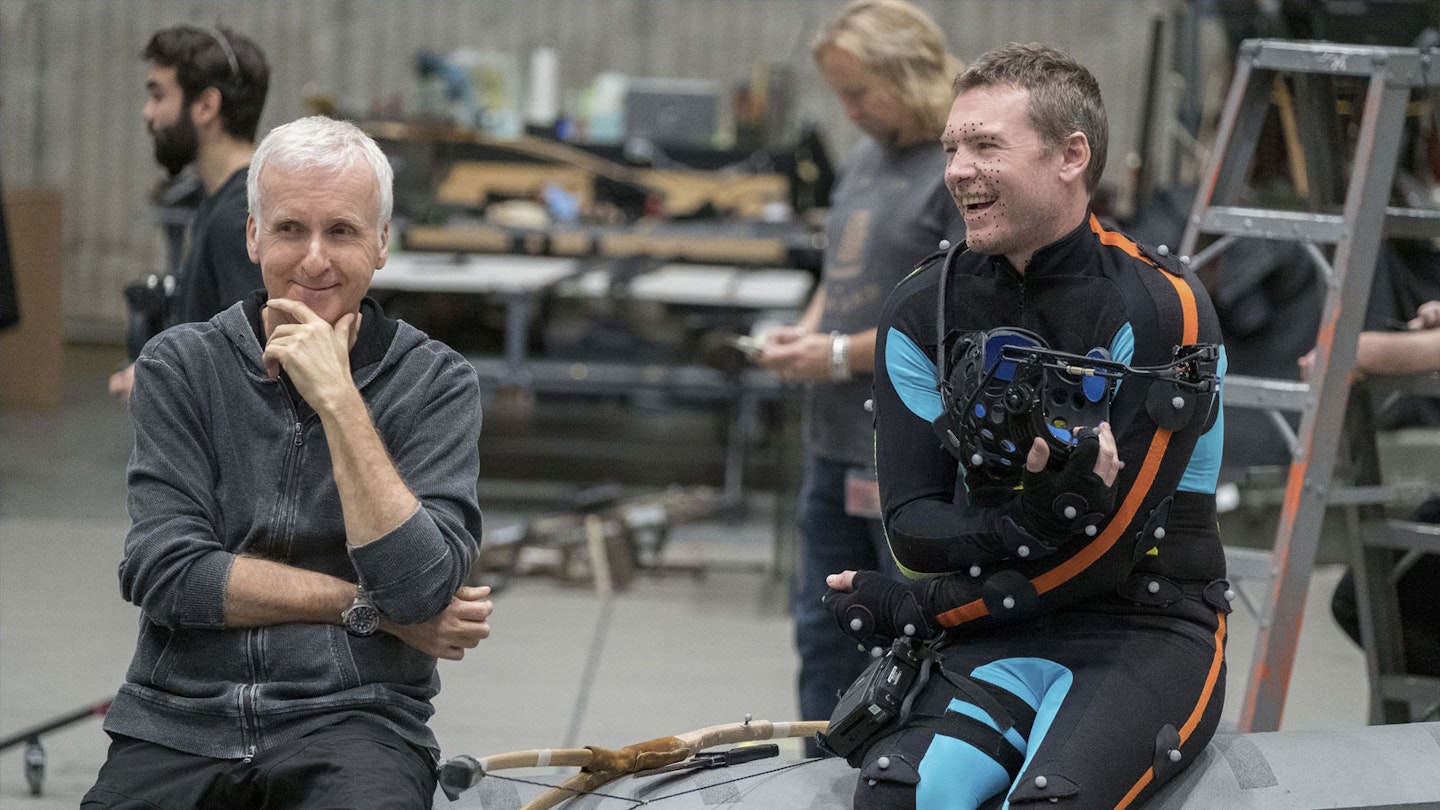
How did you find freediving?
It was the hardest thing I’ve ever done. Jim was laughing because he thought I would adapt to it quickly, because I surf. Well, when you're surfing you stay on top of the water, you don't go underneath it. It was a totally, totally different experience for me. That's the challenge I love about working with Jim. He's always gonna push me. It shows me why I love filmmaking over everything else because the techniques are what keeps you keeps you on point. You’re always learning. You can't not learn when you're dealing with filmmaking.
How do the improvements in technology affect your work in terms of facial capture?
It doesn't affect really what we do. I'm not going to change my performance because I think I’m a big blue cat; my essence is going to come out. They literally took so much imagery from our face, we had like 10,000 cameras on us, it was incredible. Sometimes film acting is extremely subtle. So, you want that to translate and not get lost in the rendering process.
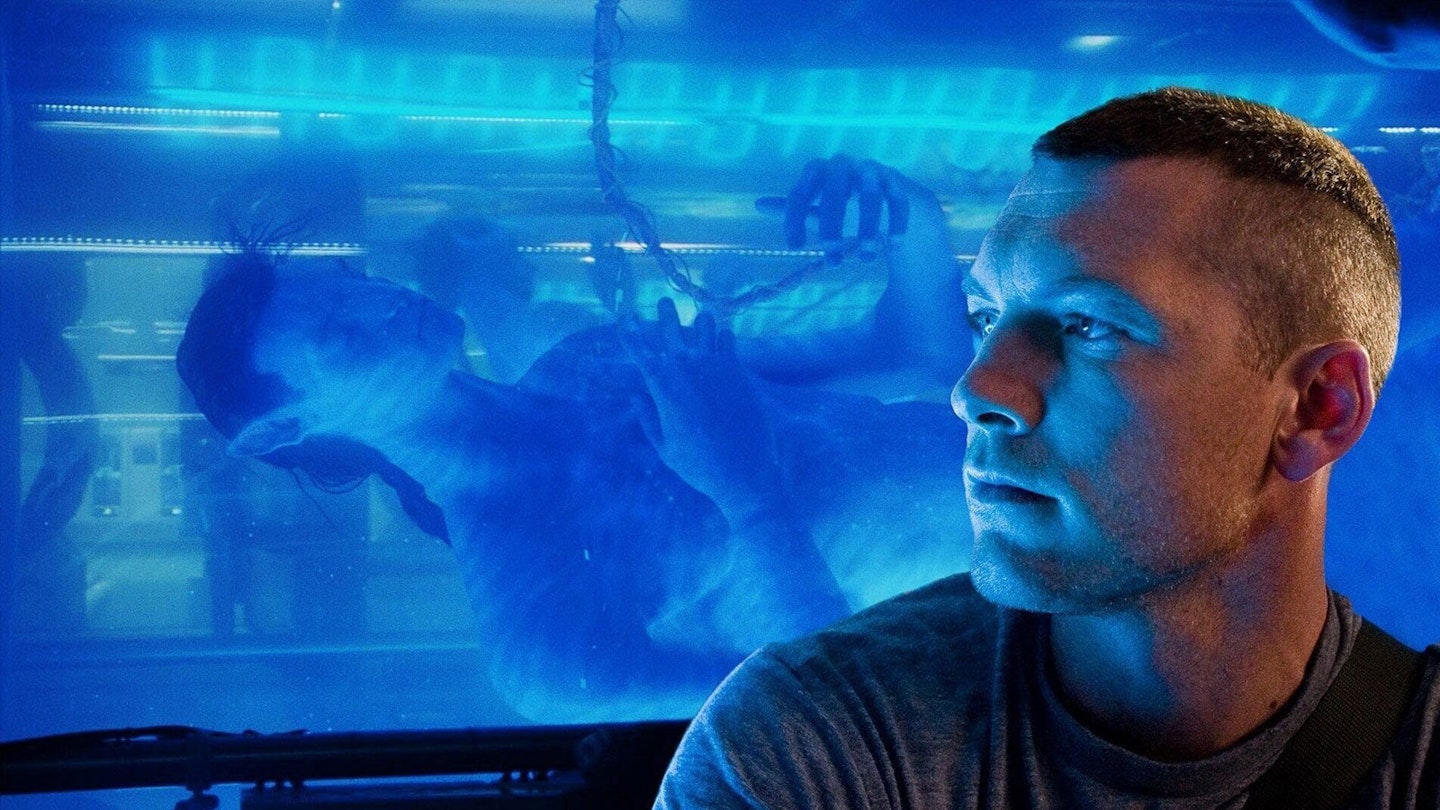
The scale of this film is huge, isn't it?
It's 100 times bigger, and then keeps getting bigger so by the time you get to four and five, it's a million times bigger. That's the way Jim operates. If he's got to do something, he raises the bar for himself and keeps challenging himself. He's not going to do a carbon copy of what he did the first time. He's just gonna keep pushing that envelope and pushing the boundaries of what he can achieve, technically, and emotionally, within filmmaking.
Speaking of four and five, you know where your character is going. Does that help you?
Absolutely. There's only a handful of us who know all the story. To me, it was very important that there's a progression of character, that the character wasn't Jake from the first one in the second, the third, the fourth and fifth film like you see in some films. To me, the hero has to evolve as well. So, you have identifying features from the original, his spirit, his rebellious nature towards things, his never-give-up attitude. But the biggest thing for me was that his behaviour has to be reshaped by what's happening around the world. So, by the time you get to three, he's still Jake, but he's going to evolve from two and by the time he gets to four, he would have evolved even more in different directions. That to me was what was interesting. I didn't just want this carbon copy.
How would you describe Cameron as a filmmaker?
Jim’s an old school storyteller. People gather around the fires, and they strengthen communities through telling stories of the past, the present and the future. And I think that Jim is one of them. I think what he loves is when the themes he talks about — love, family, hope, honour, fear, survival — are explored on the grandest scale. I think Jim really loves to explore those in a way which takes it beyond just normal, everyday pedestrian filmmaking.
Avatar: The Way Of Water is in cinemas from Friday 16 December.
